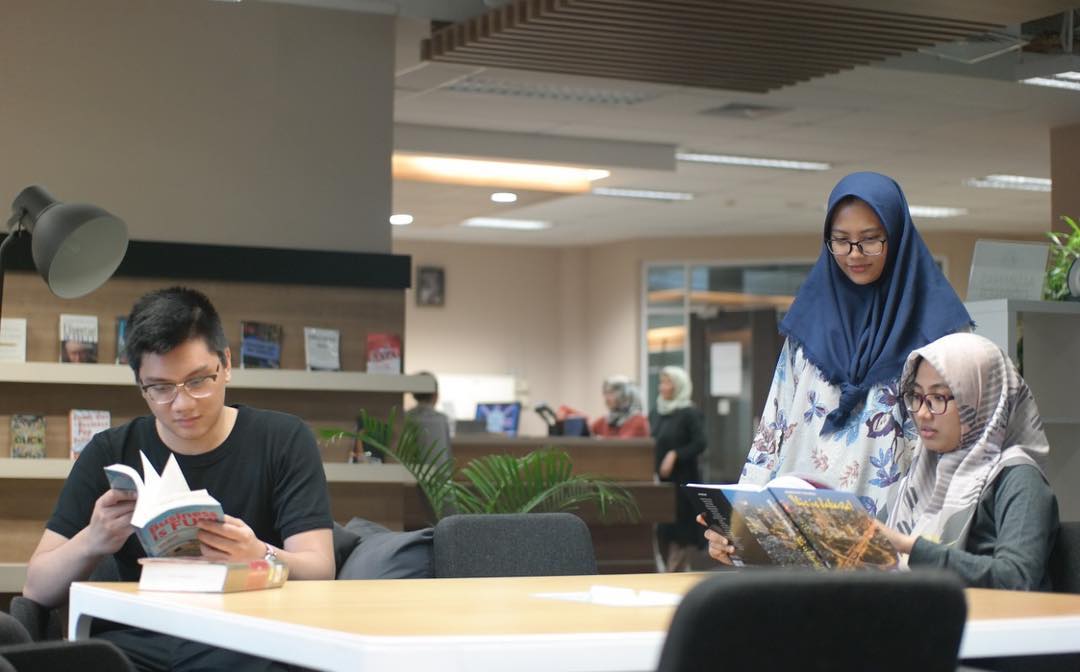Bairoy, Bernard and Budiani, Dian and SW, Dwisesanti and Rizal, Husni (2016) The Engagement Marketing Journey for IPMI- International Business School to Gain Sustainable Business Performance and become the Preferred Business School in Indonesia. Project Report. Sekolah Tinggi Manajemen IPMI, Jakarta Selatan. (Unpublished)
|
Text
The Engagement Marketing Journey for IPMI International Business School to Gain Sustainable Business Performance and become the Preferred--487.pdf - Submitted Version Restricted to Registered users only Download (146MB) |
Abstract
Mushrooming and close competition among business education providers is just one factor that shrinks growth opportunities among business schools. Considering the aforementioned factor (external) and organizational dynamics (internal) affecting the subject institution, IPMI International Business School need to strengthen its core competency and define its competitive advantage gearing towards achieving of becoming a world-class business school in Indonesia. This research study looks into IPMI’s business operations vis-à-vis sustainability. However, focus shall be limited only on the marketing aspect of the operation. IPMI’s education model shall also be analyzed in comparison to global business education such Harvard, Mintzberg, Stanford, Berkely, Chicago/Booth and Toronto. As revealed, there is an unstable growth of MBA student intakes from 1984 up to 2015. Average growth for selected decades (1984 up to 1993) was +48%; from 1994 up to 2003 was +50%; and, from 2004 up to 2013 was -15%. Tuition fee being one of the primary resources to support the institution’s operations, we can deduce that there is an apparent issue of sustainability. The following factors were found out to significantly influence the current state of IPMI’s financial sustainability: (1) Low and Inconsistent Student Intakes (BBA and MBA Programs); (2) Inconsistent and Erratic Balance of Revenue Source Mix; Lack of Access to Endowment Funds; (3) National Accreditation Level and International Accreditation & Membership. To address the overall financial sustainability issues of IPMI International Business School, the following recommendations are provided: ! Increase intakes to both BBA and MBA programs with projections where it can cover the operational cost of the schools. This can be achieved through the following: (1) Redefine IPMI brand as suggested from Etnomark’s brand audit; (2) Leverage technology with good management ! ! xii! of newsfeeds and ads through social network apps and other digital platforms; (3) Redevelop and upgrade the institution’s website and overall IT infrastructure; (4) In order to encourage faculty and maintain loyalty to the institution, a career path program has to be launched such as support for professorship programs; and (5) Improve case study materials by developing local cases in collaboration with IPMI Case Center. ! Balancing the sources of revenues coming from tuition fees of regular MBA and BBA programs, Executive Education, Consulting and other revenues. ! Tap an alternative pooling of endowment funds rather than being solely dependent on the Yayasan. Alumni and friends of IPMI is a good source. ! To keep track of the regulatory/statutory requirements in keeping abreast with the accreditation bodies, a committee needs to regularly meet. To strengthen the marketing aspect of the operations, the following is recommended: (1) Drive IPMI brand awareness by continuing and strengthening its fundamental attributes; (2) Improve IPMI brand experience for students; (3) Strengthen the expertise on education institution segment as a cash generator; (4) Drive innovation through e-learning and virtual classrooms; and, (5) Develop “One Goal Alignment” concept to drive optimum consumer satisfaction. With a long term goal of becoming a relevant global business education provider in Indonesia, IPMI’s education model is recommended strongly position in the same quadrant as Harvard, Minztberg, Yale and Lorange. According to Sembel (2015), this model strike a balance between academic rigor and business relevance. He suggested that recruitment of lecturers and evaluation for tenure track professorship should place a higher value on: (1) experience in business practice; (2) publication in professional journal; (3) participation in professional conferences and seminars; (4) networks among business practitioners; (5) contribution in consulting projects; (6) teaching in executive development program; and, (7) publication of practical books
| Item Type: | Monograph (Project Report) |
|---|---|
| Subjects: | H Social Sciences > HD Industries. Land use. Labor H Social Sciences > HD Industries. Land use. Labor > HD28 Management. Industrial Management |
| Divisions: | Library > GFP (Group Field Project) |
| Depositing User: | Latifah Latifah |
| Date Deposited: | 20 Jan 2020 02:50 |
| Last Modified: | 20 Jan 2020 02:50 |
| URI: | http://repository.ipmi.ac.id/id/eprint/471 |
Actions (login required)
 |
View Item |

